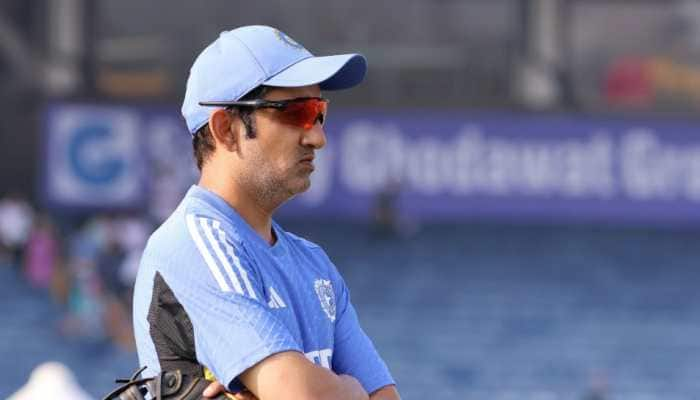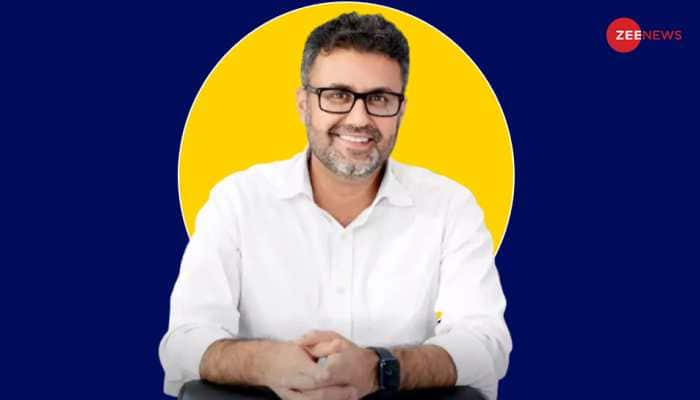UPA-III For 2014
Looking at the current scenario, the possibility of UPA winning 2014 polls seems preposterous.
Trending Photos
)
 Shobhika Puri
Shobhika Puri
Looking at the current scenario, to even suggest the possibility of the Congress or the UPA winning the 2014 general elections would seem preposterous. But, as they say, even a week is a long time in politics, so anything can happen three years later. Having said this, it would only be pragmatic to add that to achieve this the UPA-II, especially the Congress, shall have to walk that extra mile, be proactive, think out-of-the-box and look ahead. In short, the very things that it is not doing at present.
So, how can the Congress achieve this seemingly impossible goal? What can it do now after almost the whole country has lost faith in the government? How can it fight the anti-incumbency factor in 2014? How can it change itself for the better? How can it prevent more Anna-like figures casting aspersions on its motives? How can it untangle the web that it is caught in? In short, how can it just come back to power in 2014?
Anti-incumbency is a major factor that shall pose a challenge in 2014. Ideally, this can be countered by a good record of development, justice and equity. Nitish Kumar and Tarun Gogoi’s recent victories are befitting examples. It is a no-brainer to conclude that the UPA-II does not have much to boast about on this front as is evident by the current backlash against the government. UPA-I conveniently shifted all the blame for its inadequacies on the Left that was its ally back then. Fortunately or unfortunately, they do not have this excuse this time. Seven years are a good enough period for any government to show results. If it could not achieve much in seven years then it cannot be expected to do much in the remaining two years, keeping the last year exclusively for campaigning and popular schemes. But, the Congress should not lose hope for it is better to hope than to despair. Here are five obvious yet overlooked, simple yet turned complicated, popular yet currently unpopular, winning yet currently failing strategies that can help the UPA come back to power against all odds. Right to Education (RTE) became a fundament right in India on April 1, 2010. More than a year into the right and there are many children who are not even aware of this right, leave alone availing it. This was a great idea that could have revolutionized our country’s future yet, it is failing contrary to what Kapil Sibal may be claiming. It is still not too late. The government should understand that this right has the potential to attract votes, if implemented properly. Kapil Sibal is a very intelligent man, only if his intelligence was used at the right place and for the right reasons. He could be a multi-tasker who can handle both HRD and Telecom portfolios, simultaneously. But, inadvertently he is doing injustice to both. The best strategy for the Congress would be to let him concentrate on the HRD Ministry alone as currently, the Telecom Ministry is a losing battle anyway. In the former portfolio, he can concentrate all his energies on just one thing- RTE. If this right is made fully functional, it can be a great pitch for the 2014 elections.
Food Security Bill is a great idea that has emanated from the National Advisory Council. But, it is not the first. What has the government done to correct the anomalies in the Public Distribution System? What has it done to ensure proper storage and transportation of food that is rotting? What has the government done to check the misuse of ration cards and subsidies? An idea is great only if implemented properly. This Bill is said to be Sonia Gandhi’s dream so, it is incumbent upon her to prevent it from becoming a nightmare. She could spearhead this scheme’s implementation just as she did its formulation. It can be safely said that over three-fourths of our population earns just enough to feed their stomachs. They work mainly to keep their kitchens running. So, one can imagine the importance of food security.
Corruption has become the byword for politics and UPA-II is perceived to be master at that. Never before has the corruption issue become so central to governance. It is so grave that even a man like Manmohan Singh has got engulfed in it. If a man, who was the epitome of integrity till a couple of years back in whose name the UPA came back to power, can become a symbol of corruption, nothing can be worse. It is not that the government has not acted against its corrupt ministers; it is just that it has been too little, too late and that too after public pressure and court intervention. Even after sending its senior ministers like A Raja to jail, the government has not got the credit. What if the government took action against Raja when there was a whiff in the air about his misdeeds? What if Kalmadi & Co were suspended before the international shame? What the government does not understand is that it shall have to act anyways, then why not act in a manner that they can also take credit for? Right now, they have lost both - their ministers as well as their credibility. Only if it could stop turning a blind eye and not take its power for granted! No government has had such a bad image even while having given to its people great schemes like Right to Information (RTI), Right to Education, Unique Identification Number (UID) etc. UPA-II is a perfect example of public relations disaster, of how not to handle PR, of how not to deal with the media and of how to self-destruct all the positives for the few negatives? The government, especially the Congress, needs to hire professionals for its image management, people who have the capability to gloss over the negatives as positives and who can help it come out of the current mess. The most important thing that it needs to get rid of is the corruption tag. If it cannot, the likelihood of which is quite high, it can at least subtly communicate and convince the people that other parties, especially the BJP, are no better. This way, this factor shall get cancelled out in the elections.
Out of the five years that the leaders are in power, they spend only the last year of the term with their constituents. They come, they talk, they make promises, they win and they vanish, only to emerge again in the fifth year with the same set of promises. This has happened so many times that now even a child can understand why he can see a politician in his vicinity. Rahul Gandhi is meeting the villagers of Bhatta Parsaul just a year before the UP elections. No matter what he says his intentions are, the people would not believe him. If he had been meeting people earlier as well, they would have believed him. The government needs to tell its ministers to start contacting voters from now if they want to be believed in 2013, the last year of the five-year term. It would be too much to expect them to do something for the people but even if the people feel they are being heard, it shall make a huge difference.
UID, 8 percent GDP growth, successful Commonwealth Games, non-permanent membership of the United Nations Security Council and other similar achievements do not mean anything to the majority of the population that struggles everyday just to survive, the very population that forms the mass voter base, the very people whom the politicians target during the election campaigns. In a country where over 80 crore people live on less than Rs. 20 a day, how can an RTI help them? Many are either not aware of it or even if aware, they are illiterate or cannot afford its fee of Rs 10, which is sadly half or even more of their daily income. Clearly, priorities and focus need to be redefined.
If people’s stomachs are full, if they see their children going to school, if they feel their leaders care for them by being in touch with them, if they perceive that the government is serious about dealing with cheaters, votes shall follow. Five things can lead to victory in 2014. Five things and three years for their implementation. Is that asking for too much?
(Shobhika Puri is a freelance writer.)
Stay informed on all the latest news, real-time breaking news updates, and follow all the important headlines in india news and world News on Zee News.
Advertisement
Live Tv
Advertisement







)
)
)
)
)
)
)
)
)
)
